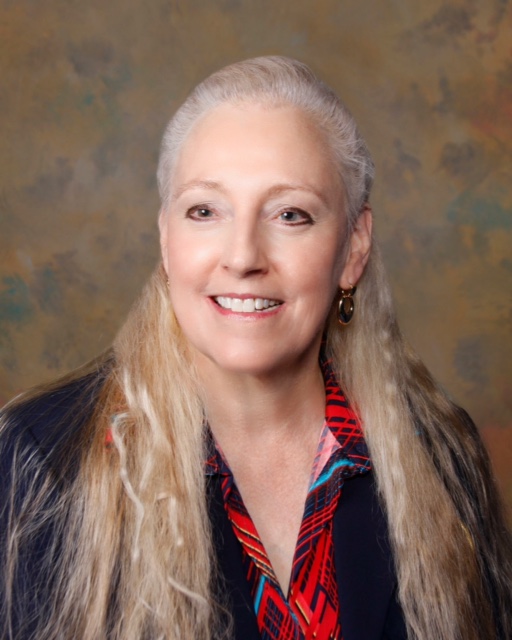Celebrating Women in Medicine Month: Diana Fite, MD ’78
 Diana Fite, MD, FACEP, ’78, lives by the motto, “I may not always have a say in what happens to me, but I always have a choice about how I respond to it.” Fite, who was immersed in a health care environment at an early age, believes God’s path had her determined to be a physician.
Diana Fite, MD, FACEP, ’78, lives by the motto, “I may not always have a say in what happens to me, but I always have a choice about how I respond to it.” Fite, who was immersed in a health care environment at an early age, believes God’s path had her determined to be a physician.
The daughter of an English immigrant, who for years was the only neurosurgeon in the Panhandle area of Texas, Fite spent her early childhood years accompanying her father during patient rounds and on emergency drives out of Amarillo to its surrounding neighborhoods. Whether spending her time drawing at the nursing station or entertaining children who were patients, Fite learned how to help people.
“Once I finally decided that I wanted to be a physician when I was in college, I’m certain it was due to that early exposure,” Fite said. “I assumed I would be a legal secretary until I realized that I could do just as well, if not better, than the males that I was encountering who were ‘pre-med.’”
On May 2, 2020, Fite’s path led her to become the first emergency medicine physician elected as president of the Texas Medical Association. She also is just the sixth female to hold the organization’s highest office in its 156-year existence.
“I have always admired the physicians who would give their time to advocate for all physicians, and at the same time be advocating for the patients as well, in order to keep the practice of medicine honorable and of the highest quality possible with the resources that we have in Texas,” Fite said. “I consider being the president to be a great privilege for me to have, and it gives me the means and access to work on a lot of issues that I believe need to be improved.”
Fite has spent her entire career advocating for change throughout the health care industry. In 2004, while involved with the TMA, Fite helped pass sweeping tort reform legislation to help protect physicians from frivolous malpractice suits. Due to unwarranted lawsuits, Texas was losing physicians all over the state, including critical physicians who practiced pediatric neurosurgery and pediatric cardiology.
“We were losing specialists all over Texas,” Fite said. “Many counties no longer had doctors who would deliver babies, and almost every company that sold malpractice insurance had left the state. Now with the reform, we have our specialists back, and many doctors have come to Texas specifically due to our tort reform making it safer for them to practice.”
Fite planned to continue to fight for physicians and health care reform upon taking over as TMA president, however the worldwide COVID-19 pandemic quickly changed those plans. Across the state, and ultimately all over the world, Fite has watched as patients were forced to risk their health out of fear of going to the emergency room, and as physicians’ careers were placed in jeopardy due to the lack of patients.
However, staying true to her motto, Fite chooses to see the positives in having her plans changed completely, and has used her experience from across her career to fight the pandemic head on.
“What a perfect time to be serving as president as an emergency physician,” Fite said. “I know exactly what it is like to see how critically ill a patient can quickly become, how worrisome it is to think of bringing the virus home to family, how scary it is to worry about catching it or about possibly running out of adequate personal protective equipment, and in the beginning to not even know how to go about treating it.”
When the pandemic is under control however, Fite will turn her attention back to being an advocate, particularly for women who are interested in becoming physicians. As the first female president of the Texas College of Emergency Physicians, the first emergency physician to be the president of the Harris County Medical Society, and now the TMA president, she hopes to encourage others to strive for what she has accomplished until it becomes commonplace for women.
“Issues that are of significant importance to women include pay discrepancy, support for time away for pregnancy-related issues and accommodations for clean and private, safe areas for nursing mothers, and the age-old problem women face in difference in respect given to women compared to men,” Fite said. “There is no question that slowly but surely more patients expect their physician may be a female, and overall, I see much less chauvinistic attitudes from the males of younger ages.”
Throughout her career, Fite has been an advocate for reform and has proven to be a leader in the fight for change. For the future, she hopes to create a more streamlined and safer environment to ensure physicians are in positions of leadership at hospitals to make decisions based on health care instead of earning a profit, and to allow physicians to spend more time treating patients than on a computer dealing with billing issues and more.
“I strongly feel that if we are willing to sacrifice so much of our time to education and taking care of others, at the expense of our families, and with so much additional mental stress worrying about patients and empathizing with their pain, then we need to be treated fairly and with respect by others,” Fite said. “I will continue to advocate for physicians, and in turn will be advocating for patients as long as I am able to.”
Written by: Roman Petrowski, Office of Communications